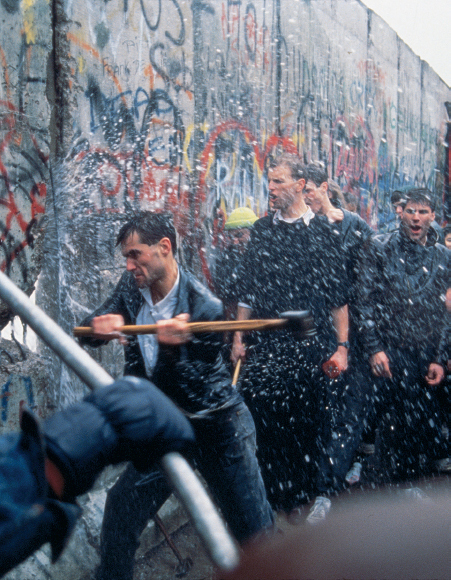America’s History: Printed Page 989
America: A Concise History: Printed Page 901
America’s History: Value Edition: Printed Page 879
The End of the Cold War
Ronald Reagan entered office determined to confront the Soviet Union diplomatically and militarily. Backed by Republican and Democratic hard-liners alike, Reagan unleashed some of the harshest Cold War rhetoric since the 1950s, labeling the Soviet Union an “evil empire” and vowing that it would end up “on the ash heap of history.” In a remarkable turnaround, however, by his second term Reagan had decided that this goal would be best achieved by actively cooperating with Mikhail Gorbachev, the reform-minded Russian Communist leader. The downfall of the Soviet Union in 1991 ended the nearly fifty-year-long Cold War, but a new set of foreign challenges quickly emerged.
